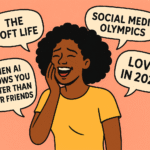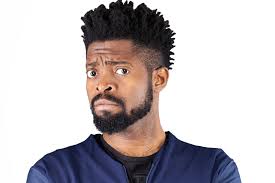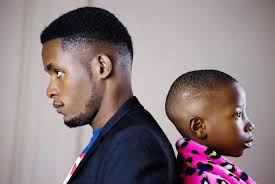In today’s fast-moving digital world, few things spread faster than a Nigerian comedy skit. From the viral outbursts of Broda Shaggi screaming “Oya hit me!” to Taooma’s lightning-fast character switches and Mr Macaroni’s classic “You’re doing well!”, Nigerian comedians have turned everyday life into an art form — and their humor has crossed borders, languages, and even continents.
- 1. The Relatability Factor: Turning Daily Struggles into Comedy Gold
- 2. The Power of Character and Identity
- 3. The Algorithm Advantage: Skits Built for the Scroll
- 4. Diaspora Amplification: When Home Meets the World
- 5. Authenticity Over Perfection
- 6. Cultural Codes: Speaking the Language of the People
- 7. Skitmakers as Social Commentators
- 8. The Business of Viral Laughter
- 9. Global Recognition: From Lagos Streets to Netflix Screens
- 10. What the Future Holds
But what exactly makes Nigerian comedy skits go viral? Why do clips filmed in cramped apartments or busy Lagos streets pull millions of views on YouTube, TikTok, and Instagram while many high-budget productions struggle to gain traction?
The answer lies in a powerful blend of relatability, creativity, and raw authenticity — three qualities that have transformed Nigeria into Africa’s laughter capital.
1. The Relatability Factor: Turning Daily Struggles into Comedy Gold
Nigerians have long known how to find humor in hardship. From erratic power supply and traffic jams to endless queues and family drama, the average Nigerian’s daily experiences are both frustrating and hilarious — often at the same time.
Comedy creators have learned to spin those struggles into stories everyone understands. When Taooma acts out the role of a strict African mother, or Lasisi Elenu rants about Nigeria’s internet connection, audiences see themselves — and laugh at their own lives.
As Amaka Ibeh, a Lagos-based media analyst, told Pulse Nigeria:
“Nigerian skitmakers have mastered the art of transforming frustration into laughter. They’re not just entertainers — they’re therapists using humor to help people cope with reality.”
This emotional connection is what fuels virality. When viewers feel seen, they share. That’s why Nigerian skits rack up millions of views within hours — they’re not just jokes; they’re reflections of life.
2. The Power of Character and Identity
Unlike Western comedians who might rely heavily on one persona or a fixed studio setup, Nigerian comedians play entire casts in a single clip. One person can switch between a father, mother, teacher, student, and even a nosy neighbor in under 30 seconds.
This theatrical approach is one of Nigeria’s strongest comedic exports. It’s creative, resourceful, and incredibly watchable.
Taooma, for example, seamlessly portrays a full household — slapping, scolding, and switching roles with cinematic precision. Meanwhile, Mr Macaroni and Broda Shaggi create characters that have become cultural symbols, each representing a slice of Nigerian society.
According to a 2024 study by Guardian Nigeria, audiences connect more with comedians who use “character diversity” to mirror real-life social settings, as it creates familiarity and humor that transcends regional dialects and class differences.
3. The Algorithm Advantage: Skits Built for the Scroll
In the age of short-form content, timing is everything. Nigerian comedians have mastered the new digital rhythm — hook the viewer in 3 seconds, deliver a punchline in 15, and leave them replaying it five times.
Platforms like TikTok, Instagram Reels, and YouTube Shorts have algorithms that reward watch time, engagement, and shareability — and Nigerian skitmakers intuitively play to those strengths.
They use loud openings, expressive faces, local slang, and fast editing that keeps the viewer glued. Even the captions and hashtags are part of the strategy — witty, clickable, and relatable to everyday struggles (#NaijaNoDeyCarryLast, #VillagePeople, #Wahala).
As social media strategist Daniel O. Adeoye explains:
“Nigerian comedians aren’t just funny — they’re strategic. They study what works, adapt to trends instantly, and post with precision. That’s why their content cuts through globally.”
4. Diaspora Amplification: When Home Meets the World
Another reason Nigerian skits go viral is the diaspora effect. Nigerians abroad — from London to Toronto — are some of the most passionate promoters of local content. For them, these skits are a nostalgic connection to home, culture, and community.
When a Lagos-based comedian uploads a video, it’s not just watched in Nigeria — it travels to WhatsApp groups in Ghana, comedy forums in Kenya, and Nigerian communities in the U.S. and U.K. Within hours, it becomes an international inside joke.
According to YouTube’s 2023 Africa Trends Report, 68% of viral Nigerian comedy content is shared outside Africa within the first 72 hours of posting — mostly by diaspora audiences.
This means every new skit has built-in international distribution, powered by emotion and cultural pride.
5. Authenticity Over Perfection
Unlike Western influencers who chase cinematic production, Nigerian creators often shoot with simple setups — phones, daylight, and raw energy. But that’s exactly what makes it real.
Viewers don’t care about perfect lighting; they care about truth. A skit filmed in a cluttered room feels more human than one with studio lights and makeup artists.
And the creators know this. Many intentionally keep their setups minimal because it adds to the charm. “People trust content that looks unfiltered,” says SkitMakerHub, a Lagos creative agency. “That’s why Nigerian comedy feels genuine — it’s laughter from the street, not a movie set.”
6. Cultural Codes: Speaking the Language of the People
Nigerian humor isn’t universal in structure — it’s layered with local idioms, pidgin English, and insider jokes that feel exclusive but welcoming.
A single line like “Na who dey breathe?” or “Something must kill a man!” carries years of cultural evolution. The jokes work because they’re built on shared understanding.
For foreigners or non-Nigerians, the energy and emotion often translate even when the language doesn’t. Comedy, after all, is a universal language — and Nigeria speaks it fluently.
7. Skitmakers as Social Commentators
Modern Nigerian comedians aren’t just entertainers — they’re social critics.
Through satire, they expose corruption, mock government inefficiency, and highlight societal contradictions in ways traditional journalists can’t. Mr Macaroni, for instance, often tackles issues like police harassment and social injustice while keeping it funny and engaging.
This mix of humor and activism gives skits cultural weight. They become both entertainment and awareness campaigns. As a result, audiences not only laugh but think — and that emotional impact fuels deeper engagement.
8. The Business of Viral Laughter
What began as passion projects has now evolved into a serious business. Top Nigerian skitmakers earn through brand endorsements, YouTube monetization, and event appearances.
Some, like Broda Shaggi, have signed deals with telecom brands, while others collaborate with fintechs, fashion labels, and NGOs. A single viral skit can turn into a long-term brand campaign.
Comedy collectives like The Johnsons, House of Ajebo, and Neptune3 Studios have even formed production companies, showing that Nigerian comedy is not just viral — it’s sustainable.
9. Global Recognition: From Lagos Streets to Netflix Screens
Nigerian humor has now broken into mainstream entertainment. Basketmouth, Bovi, and AY have all transitioned from local skits to international comedy specials.
Streaming giants like Netflix and Amazon Prime Video are taking note, acquiring African comedy content and even sponsoring stand-up specials.
The world is beginning to see what Nigerians have known all along — that laughter from Lagos can resonate anywhere.
10. What the Future Holds
As AI tools and mobile technology evolve, Nigerian comedy will likely expand beyond short skits into animation, digital storytelling, and even virtual comedy shows.
Creators are already experimenting with AI voiceovers, 3D effects, and global collaborations, ensuring that Nigeria’s humor keeps evolving with the times.
But one thing will never change — the country’s ability to find joy in the chaos.
Nigerian comedy skits don’t just go viral because they’re funny — they go viral because they’re true. They capture the struggles, spirit, and resilience of a nation that laughs even in the face of challenges.
From TikTok to TV, from Lagos to London, the world can’t get enough. Because when Nigeria laughs, everyone listens.
Sources:
- Pulse.ng – “Inside the World of Nigerian Skitmakers” (2024)
- Guardian Nigeria – “How Digital Comedy Redefined African Entertainment” (2023)
- Afro Comedy interviews and media analysis




















